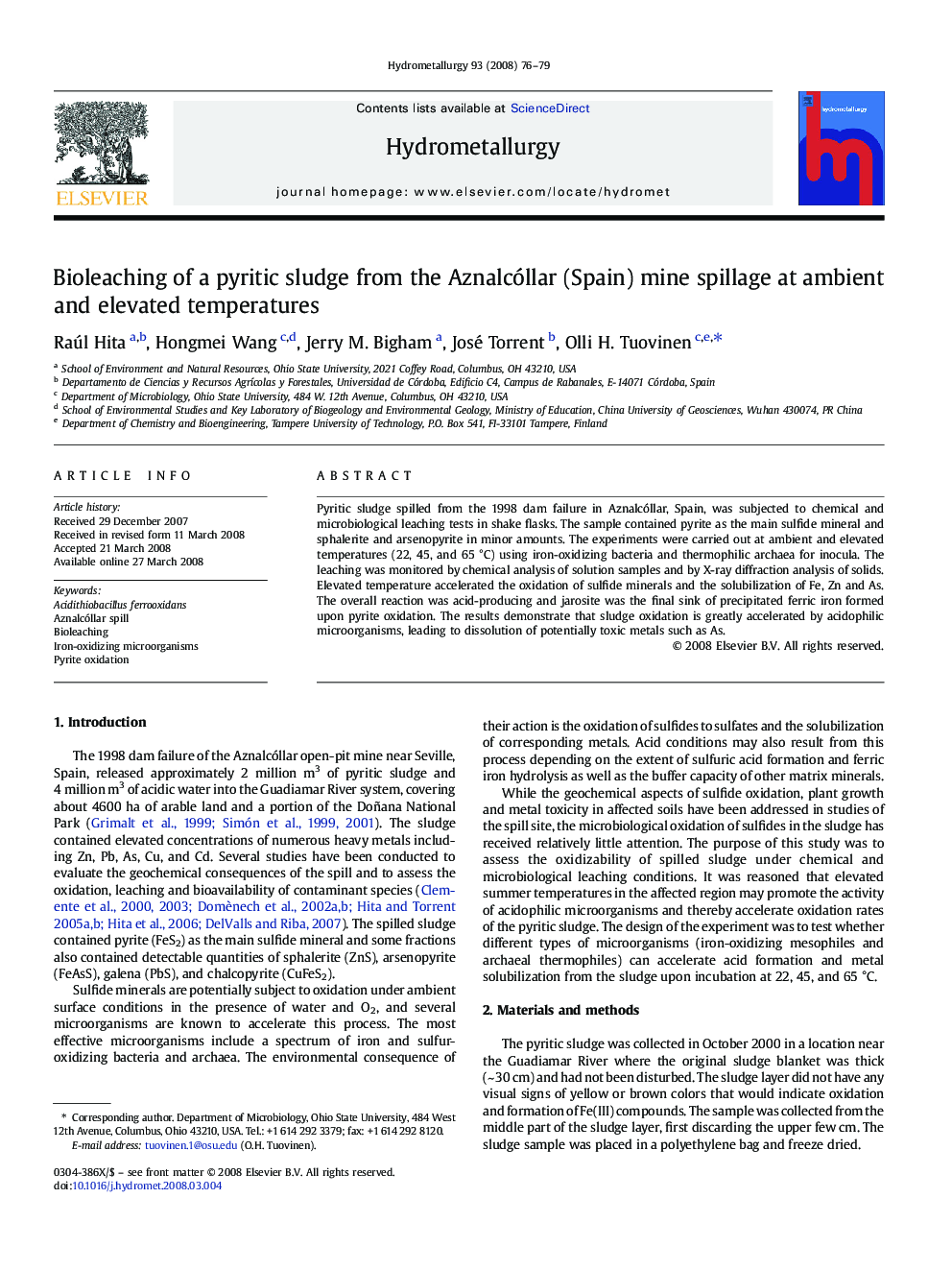| Article ID | Journal | Published Year | Pages | File Type |
|---|---|---|---|---|
| 213191 | Hydrometallurgy | 2008 | 4 Pages |
Pyritic sludge spilled from the 1998 dam failure in Aznalcóllar, Spain, was subjected to chemical and microbiological leaching tests in shake flasks. The sample contained pyrite as the main sulfide mineral and sphalerite and arsenopyrite in minor amounts. The experiments were carried out at ambient and elevated temperatures (22, 45, and 65 °C) using iron-oxidizing bacteria and thermophilic archaea for inocula. The leaching was monitored by chemical analysis of solution samples and by X-ray diffraction analysis of solids. Elevated temperature accelerated the oxidation of sulfide minerals and the solubilization of Fe, Zn and As. The overall reaction was acid-producing and jarosite was the final sink of precipitated ferric iron formed upon pyrite oxidation. The results demonstrate that sludge oxidation is greatly accelerated by acidophilic microorganisms, leading to dissolution of potentially toxic metals such as As.
